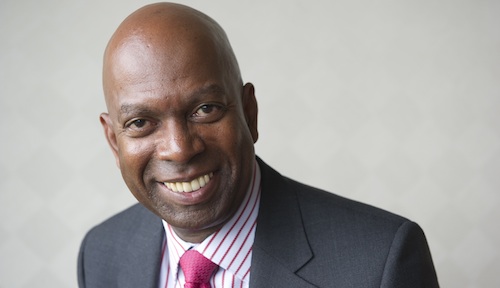
South Africans will be amazed to learn that Kenyans pay Ksh4/minute, or about 34c/minute, to make a mobile phone call — and that’s one of the most expensive rates on offer in the East African nation.
In some cases, prices have fallen to just Ksh1, or about 8,5c/minute. On Safaricom, the biggest mobile operator, on-network calls are just Ksh3/minute, or less than 30c/minute.
A price war has erupted in Kenya, with Bharti Airtel — a new entrant in the market after it acquired Zain from Kuwait’s Mobile Telecommunications Co last year — slashing prices by more than 80% in the past six months.
Now other operators are worried that Airtel, which is a tiny player next to Safaricom, could damage the market.
Safaricom CEO Bob Collymore says Airtel is using Kenya, where its market share is relatively inconsequential, as a test bed for how slashing prices to below cost will allow it to grab market share from bigger rivals.
Airtel acquired Zain’s African assets in 2010 for US$10,7bn, giving it access to important markets like Kenya, Nigeria and Ghana.
Last August, Airtel cut the price of calls from Ksh6 to Ksh3, prompting Safaricom, which is part owned by the Kenyan government and by the UK’s Vodafone, to respond with price cuts of its own. On-net calls between Safaricom customers have fallen to Ksh3/minute while calls to other operators cost Ksh4.
Even those prices — which Collymore says are still sufficient to guarantee Safaricom a reasonable profit margin — would have SA consumers salivating. But then, earlier this month, Airtel cut its prices again, slashing the cost of an on-net call from Ksh3 to just Ksh1.
To put that in context, SA prepaid users pay up to R2,85/minute, or more than 33 times the Airtel Kenya rate. Even on special packages, where SA prepaid users can pay rates of as little as R1,50/minute, the Airtel tariffs are still less than 15% of the local rate.
In general, tariffs in Kenya are 20% of the equivalent rates charged by Vodacom, MTN and Cell C in SA, and often even a lot less than that.
The Kenyan market has four mobile operators. Safaricom dominates with about 77% market share, with Yu (owned by India’s Essar), Orange (formerly Telkom Kenya and now owned 51% by France Telecom) and Bharti Airtel sharing a minority share of the market.
There are about 23m active Sim cards in a market of about 40m people. Collymore estimates that penetration has reached 100% of the adult population when measured using active Sim cards. However, about 30% of Kenyan cellphone users carry two or more Sims to take advantage of special tariffs at certain times of the day.
The average revenue per user (Arpu) in Kenya is just over US$5, significantly lower than SA, where operators typically enjoy prepaid Arpu of well over R100/month. Airtime can be bought in units of as little as Ksh5 (42c).
Though consumers love the low prices, Collymore warns that the price cuts are getting out of hand. “They can’t do this profitably,” he says of Airtel’s new on-network tariffs.
Collymore says research shows that it costs Ksh1,72/minute to terminate an on-network call in Kenya.
“Airtel is using Kenya as the test bed [for Africa],” he says. “Because the company has insignificant market share in Kenya, if they damage their business here it doesn’t matter. They can just pack up and go home.”
He says Airtel is much more cautious about slashing rates in countries like Nigeria where it has a larger market share to defend.
He warns Airtel’s actions in Kenya could damage the market, reducing government tax receipts and ultimately harming consumers as operators stop investing in infrastructure because they are unable to do so profitably.
“If we all had to shift down to those price levels we simply wouldn’t invest anymore in voice,” Collymore says. “We’d have to retrench staff and outsource work to Egypt or India.”
Airtel claims its price cuts are working, claiming recently that it had gained 2m subscribers and boosted call volumes significantly. But Collymore disputes this, saying the Indian-owned company has simply been giving away free Sim cards.
He expects the Kenyan government will eventually intervene when it realises its tax receipts are threatened.
“I think government will step in and put a floor on it,” he says. “Either it’ll do so through a crude tax mechanism, or it’ll change legislation to put a floor on prices.”
That would be astonishing if it happened. In SA, some politicians and even consumers have grumbled about the need for price caps on call tariffs; in Kenya prices have fallen so far that a floor on prices may be considered.
As the price war drags on, Collymore says Safaricom has a number of ways of fending off the competition. One is its highly popular M-Pesa mobile payments platform now used by 14m Kenyans. Another is its third-generation mobile data network, the only one in Kenya.
Like everywhere else, demand for data in Kenya is booming and Safaricom is already testing a next-generation broadband network using long-term evolution. — Duncan McLeod, TechCentral
- Subscribe to our free daily newsletter
- Follow us on Twitter or on Facebook




